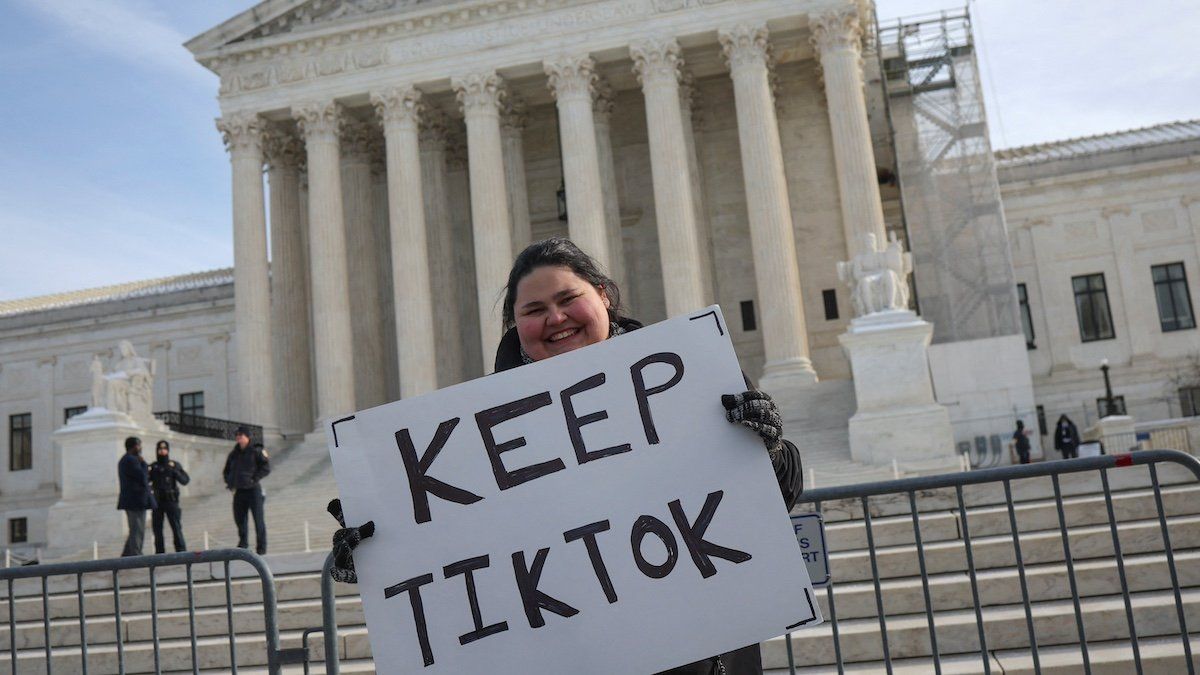On Friday, the Supreme Court appeared poised to uphold the TikTok ban, largely dismissing the app’s argument that it should be able to exist in the US under the First Amendment’s free speech protections and favoring the government's concerns that it poses a national security threat.
Put simply, they see it as an issue of national security, not free speech.
“Congress doesn’t care about what’s on TikTok. They don’t care about the expression,” claimed Chief Justice John Roberts during questioning, clarifying “That’s shown by the remedy. They’re not saying TikTok has to stop. They’re saying the Chinese have to stop controlling TikTok.”
What’s the threat? US lawmakers are concerned about the Chinese government having access to enormous amounts of Americans’ data – and fear the app could be used to spread Beijing’s agenda. Facebook and other American social media platforms are notably banned in China – with Beijing taking a similar view to that of the US government. The justices seemed worried that TikTok could be used for espionage or even blackmail.
What does upholding the ban mean for the app? If the court rules against the app, it would mean that Bytedance, Tiktok’s parent company, must divest from the company before Jan. 19 or face a national ban on national security grounds. The app would no longer be available on the Google or Apple app stores.
But it won’t disappear from your phone if you already have it downloaded. The ban would only affect future downloads. Without the ability to update the app, however, it will likely degrade, and TikTok may block US users before that happens to avoid further legal issues. Incoming President Donald Trump has pledged to save the app, but there is no clear legal method to do so.
The decision could be an early reflection of one of this year’s Top Risks 2025 from our parent company, Eurasia Group: the breakdown of the US-China relationship. The world’s biggest superpowers increasingly distrust one another, and Trump’s return to office is likely to exacerbate the decoupling — increasing the risk of instability and crisis.
